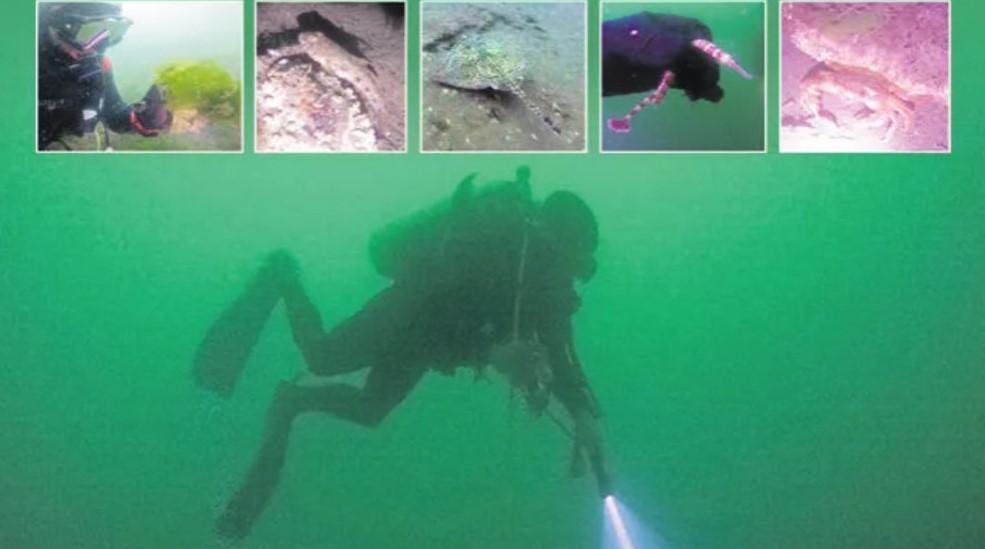
Benthos such as thornback, flounder, needlefish, blenny and crab, which had left the Marmara Sea last summer, has returned, according to experts who divided into the waters along the coast of Eskihisar in the northwestern province of Kocaeli’s Gebze district to investigate the destructive effect of mucilage.
According to the experts, large masses of mucilage that heavily invaded the sea can no longer be seen but still exists as a thin layer.
The experts also pointed out that the mucilage that covers the rocky habitats where creatures such as sponges, algae, starfish, mussels and tripang live together persists on fish nests as well.
“We have determined that the mucilage breaks down and covers the fish nests and rocky habitats. But now, there are thornback, needlefish, blenny and rockfish besides flounder,” said expert Metin Karadağ, emphasizing that there is still much to be done for Marmara. “Despite all the pollutants, Marmara Sea survives,” he added.
The experts said that solid waste pollution and chemical wastes, which are as dangerous as mucilage, still threaten the Gulf of İzmit, at the easternmost edge of the Marmara Sea.
“Benthos returning after the devastating effect of the mucilage created great joy, but the threat of rainwater channels flowing into the sea and the solid waste left on the beach is greater,” diving instructor Mustafa Atay said, adding that these plastics remain in the sea for hundreds of years.
People need to be more conscious, and it is necessary to ban all kinds of fishing in the region, Akay said.
“If we take good care of Marmara, I am sure that gurnards will also return,” he added.
In a symposium held in January, with the participation of 56 institutions and 189 scientists, solutions were developed to prevent pollution, increase biological diversity, as well as protect the Marmara Sea.
“It is necessary to prevent the nitrogen and phosphorus pollution, to stop domestic, industrial and agricultural pollution, and to switch to an advanced treatment system,” said the scientists, underlining the importance of increasing fixed and floating type intake systems in order to prevent marine pollution.
“Industrial facilities need to be encouraged for advanced treatment systems,” they added.